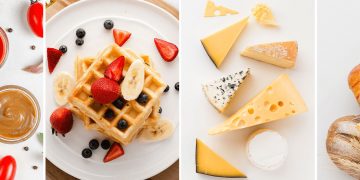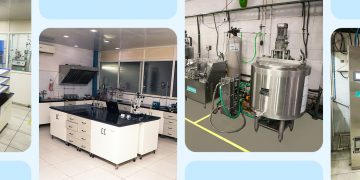What Are The Advantages Of Using Preservatives In Food?
Do you know? Many individuals are avoiding meals that include less-than-natural ingredients these days because of preservatives that are added to a variety of meals such as vegetables, fruits, and canned foods for a variety of reasons. These preservatives are also found in items such as processed foods, drinks, sweets, bread, and other baked goods these days.
Preservatives! A well-acknowledged name in the food industry and products. You might have seen the word “preservatives” in the labeling of the product, it depicts that any form of preservative has been added.
Why are these found in packed or unpacked food items?
Have an idea!
Well, the reason behind this is that preservatives assist to make the food fresh and shelf-stable for a longer period. As some eatables are not good to go for a longer time, so to maintain their freshness and increase their shelf-life, preservatives are added. Mould and bacteria are prevented from growing by using several food additives that prolong the product’s life and improve profitability.
What are Preservatives?
The term “food preservation” refers to any measure used to prevent the development of harmful microorganisms or the occurrence of microbial or chemical changes in food. There are many different types of preservatives such as natural (such as nisin, natamycin, aloe vera, salt, sugar, etc.) and artificial (sorbates, nitrates, sulfites, antimicrobial agents, etc). Some of the commonly used preservatives are Salt, Sorbates, Nitrites, BHA & BHT.
However, the question arises- are these preservatives harmless? After all, these are add-ons in any form! We do not know how these are going to affect the human body. Through this article, you will find the pros and cons of using preservatives in food.
What are some of the benefits of using preservatives?
The advantages are counted on by the food industry and also experienced by homemakers. Let’s have a look below:
1. Firstly, these preservatives act as a barrier against the growth of bacteria. Hence, the composition of food items does not change and can be consumed without worrying about microbes, bacteria, etc.
2. Not all preservatives are chemically made; there are also natural preservatives that are non-harmful such as sugar and salt. Such natural preservatives avoid the decomposition of food items.
3. Preservatives are heavily used in mass production like wheat, paddy, or other crops that are grown and stored in bulk. To avoid their decomposition, preservatives are added to serve billions of people.
4. Artificial preservatives act as antioxidants and make food acidic, reducing the moisture level in food items, and thereby slowing down the ripening process.
5. Preservatives assist in the reduction of food waste by extending the shelf life of food that would otherwise spoil before it is used.
6. As the process of ripening is slowed down using preservatives, that means your trips to grocery stores would also be limited.
7. Preservatives are added to meats to remove all their toxins and make them safer for consumption.
8. Another added advantage is that preservatives added to food make them visually attractive. For example, sodium nitrates and nitrites are used to preserve the color of meat; the white color of flour is preserved through bleaching.
9. Salt is a natural preservative and enemy of all bacteria; any microorganism drawn to food will be unable to thrive in the presence of salt.
The drawbacks of using preservatives
We all have heard that every coin has two sides. Similar is the case with preservatives. If there are benefits of adding preservatives to food, then these are accompanied by some disadvantages. Food preservatives are often linked with digestive disorders, nervous disorders, respiratory problems, and skin problems.
Conclusion
With the above-stated information, it is crystal clear that food preservatives are combined with both positive as well as negative factors. One should never ignore the harmful effects of artificial preservatives that they impose on human health. These are not related to adding up any nutritional value to the food, these are only meant to make food good in terms of shelf-life, appearance, and boost sales.
As far as natural preservatives matter, these are not dangerous for health, though they may not work as artificial ones. Hence, the selection of food preservatives must be made wisely so that its disadvantages never overweight its advantages.
References:
https://healthyliving.azcentral.com/pros-cons-of-rbgh-12228025.html
http://neilpathakchemistry.weebly.com/pros-vs-cons-of-preservatives.html
https://www.gerdhelp.com/blog/preservatives-uses-benefits-and-risks/
Copyright © 2024 Gujarat Enterprise . All Rights Reserved.




Leave a Reply